Is your senior dog not eating? It is concerning when it no longer enjoys its food. This could be a symptom of illness, stress, or simply aging. Here is how you can aid your fluffy companion: It is easy to help our dogs eat healthier and feel better. We have some viable solutions that we have tested several times, and those have worked.
Why Senior Dogs Stop Eating
Senior dog vomiting yellow bile and not eating for several reasons. It’s part of growing old, but it could also mean something else is wrong. Then, they need to know if it’s okay, regular, or time to seek a vet. Here are some common causes of senior dog vomiting after drinking water and not eating.
Common Age-Related Changes
- My Senior dog suddenly not eating since their bodies slow down and need less energy.
- As dogs age, they naturally rest more and spend less time playing or running.
Dental Problems
- My senior dog is not eating because older dogs often have dental problems, like worn-down teeth, gum disease, or mouth infections, which can cause discomfort while eating.
- If your dog doesn’t want to eat, it might have teeth problems. Regularly checking one’s teeth can help prevent them from getting worse.
Gastrointestinal Problems
- Older dogs are likelier to have tummy problems, like an upset stomach, constipation, or a blockage. A senior dog eating wet food but not drinking water could also show signs of tummy issues like throwing up, diarrhea, or bloating because the senior dog will not eat and has mucus in diarrhea.
Chronic Diseases
- Older dogs can get sick with kidney, liver, diabetes, and cancer diseases, which can lead to symptoms like a senior dog not eating and throwing up.
- They feel tired, sick, or in pain, so they don’t want to eat.
Stress or Anxiety
- Older dogs feel scared when they move to a new house or see new people or pets, so they refuse to eat anything.
- If your dog has to take some new medicine, he may feel sick and not want to eat. Always ask the vet about it!
Medical Conditions That Affect Senior Dog’s Appetite
It’s good to know why this happens so you can keep them healthy. You can ask why my senior dog is not eating as much. If your dog suddenly stops eating and vomiting, it may be having a tummy problem.
When their kidneys aren’t working correctly, dogs become sick and don’t want to eat. Also, ask the senior dog not drinking water but eating; it could be a sign of any other disease. Cancer is another serious sign that if your dog ate, it would hurt, so it wants to eat as little as possible.
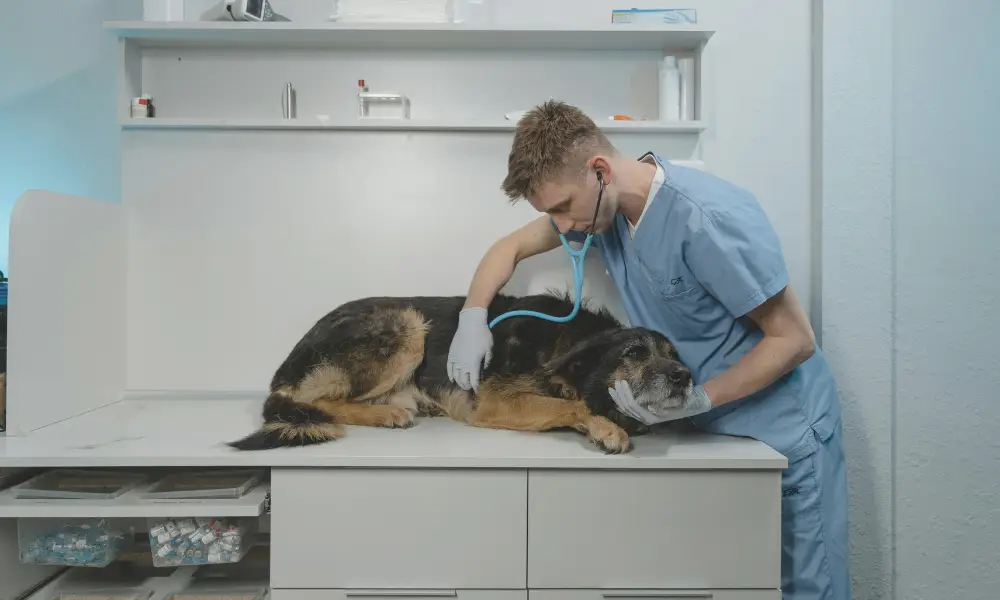
Medical Condition & Potential Symptoms
- Gastrointestinal Issues: Nausea, vomiting, abdominal discomfort
- Kidney Disease, Nausea, general lack of interest in food
- Cancer Discomfort or pain during eating
- Why does my senior dog not want to eat? They can find out why and help. This can make your dog feel better and want to eat again.
Key Signs That Your Senior Dog Might Be Suffering from a Health Condition
You can monitor other symptoms that may indicate a serious condition. Here are some signs to watch your senior dog sniffing food but not eating:
- Lethargy: If your dog is more tired, has less energy, and doesn’t want to do fun things, it might mean something is wrong with their health.
- Vomiting or Diarrhea: Regular vomiting, especially if it’s accompanied by yellow bile or foamy vomit, may indicate digestive problems, infections, or organ failure.
- Trembling: You should see a vet if your senior dog coughs after drinking water but not eating. It may not want to eat because of pain or discomfort.
- Weight Loss: Sudden weight loss can indicate metabolic disorders, Cancer, and other serious health issues.
- Foul Breathing or Drooling could indicate dental disease and a severe infection.
When Should You Take Your Senior Dog to the Vet?
Suppose a senior dog is drinking but not eating for 24 hours (a typical result of nausea) and exhibiting other symptoms like vomiting, lethargy, and weight loss. In that case, it’s time to see your vet. Here are some guidelines on when “not eating” should be taken more seriously:
- Over 24 Hours: If a senior dog drinking a lot of water and not eating for more than 24 hours, it’s best to call the vet to ensure his health.
- Signs of Pain or Discomfort: If your senior dog falling not eating shaking shows symptoms like whining, avoiding movement, or trembling, it may suffer from a painful medical condition.
- Behavioral Changes: Sudden changes in behavior, such as not eating or becoming more withdrawn, should prompt a visit to the veterinarian.
- Difficulty Eating or Drinking: If your dog cannot eat or drink (even water), there may be an oral health issue, dehydration, or Cancer.
- Also Read: Venison Dog Food Recipes
Why Your Older Dog May Stop Eating
Several different diseases can cause your older dog to stop eating. Knowing the cause will help dictate treatment and prognosis.
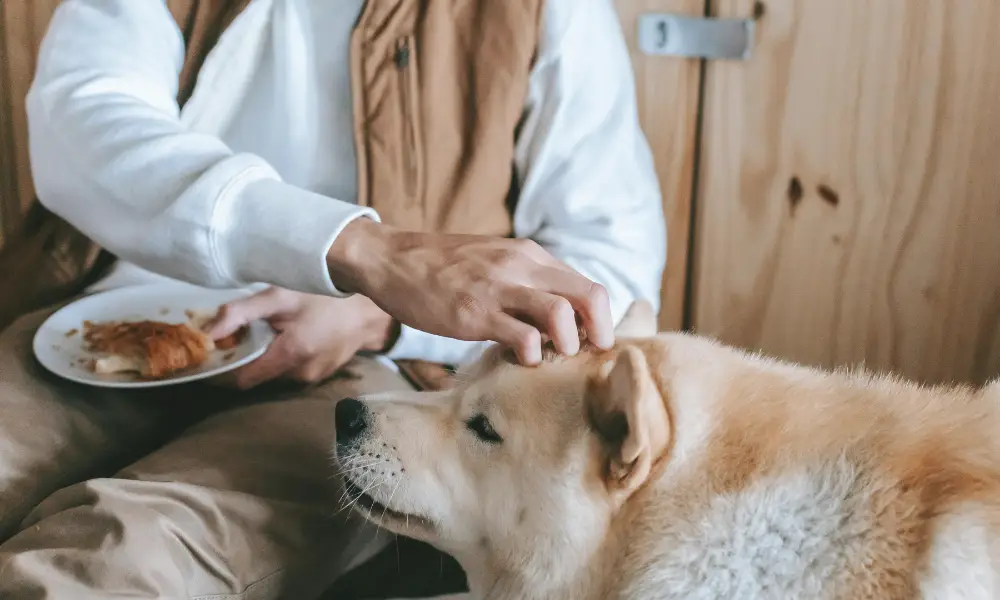
Dental Disease
As mentioned, dental disease is common in senior dogs. Periodontal disease, abscesses, and infections can cause signs and pain, and your dog will not chew when you do. Regular dental exams and teeth cleanings can help to catch dental problems early.
Kidney Disease
Kidney disease is more common in older dogs and may cause them to lose their appetite, be lethargic, or vomit. However, early diagnosis and appropriate management can help ensure your dog maintains a good quality of life. A blood test can check kidney function.
Liver Disease
The liver is responsible for metabolizing food, and it can decrease appetite when it is not working correctly. Signs include vomiting, jaundice (a yellow tinge in the gums, white part of the eye, and skin), and lethargy (tiredness). Your vet can perform blood tests to check liver enzymes.
Cancer
Unfortunately, cancer is a common disease in senior dogs, and one of the significant symptoms of this disease is weight loss along with decreased appetite. In some cases, a senior dog not gaining weight but eating may still occur, as cancer tumors, particularly those in the mouth, stomach, or intestines, can cause pain, leading to reduced food intake.
Gastrointestinal Problems
An upset stomach and infections can cause a lack of appetite. In some cases, senior dog stomach gurgling not eating. Conditions like pancreatitis, GI infections, or inflammatory bowel disease are common in older dogs.
Diabetes
Diabetes is another condition that can affect appetite. At the same time, dogs with diabetes may drink more water and lose interest in food. You can monitor their water intake and symptoms, like excessive urination or lethargy.
How to Encourage Your Senior Dog to Eat
Why senior dogs do not want to eat? Older dogs tend to have more sensitive teeth, which dry kibble can irritate. Wet food is easy on their teeth and contains moisture to help keep them hydrated. Try Hand-Feeding: Sometimes, when dogs are too depressed to eat on their own, hand-feeding can help. This method can work wonders if your dog is feeling stressed or anxious.
Why senior dog does not eat? You can warm up your pup’s food; it smells better and is more appetizing. Just make sure it isn’t too hot when you serve it. Try Different Flavors: Sometimes, your dog may get bored of its food. In that case, you can switch to a new flavor or type of food altogether.
Many high-quality, nutrient-rich foods are available for senior dogs. Add Toppings: Adding a little chicken broth or plain boiled chicken can make your dog’s meal more appetizing. Some dogs might feel uneasy or stressed when eating, so make sure they are in a quiet, calm space.
- Also Read: Mixing Wet & Dry Dog Food Calculator
Can Senior Dogs Eat Raw or Cooked Food?
Some owners consider switching to raw or cooked food for their senior dogs. While this can be an excellent choice, there are a few things to keep in mind:

Raw Food
- Raw food diets can be beneficial but should be carefully balanced to provide all the essential nutrients. Consult with your vet before making the switch to a raw diet.
- Raw diets also risk foodborne illness, so follow safe food-handling practices.
Cooked Food
- Cooked food, such as lean meats, vegetables, and rice, can be an excellent alternative for senior dogs. Ensure the food is free from harmful additives like salt, onions, or garlic.
- Always check with your vet to ensure the diet meets your dog’s nutritional needs.
Senior Dog Not Eating But Drinking Water: What It Means
Sometimes, your senior dog not eating but still drinking water. This can worry pet owners, but it can help to fix the problem.
There are a few key reasons.
- Nausea or Digestive Issues: Senior dogs may experience nausea or gastrointestinal problems that make them reluctant to eat, but they still need to stay hydrated by drinking water.
- Dental Problems: Painful dental issues, such as tooth decay or gum disease, can make it difficult to chew and swallow solid foods, leading them to avoid eating while drinking water.
- Medication Side Effects: Some medicines for old dogs can cause them to lose interest in food but drink water.
If our old dogs don’t eat, we should ask a vet for help. Meanwhile, these strategies can help keep them healthy and happy.
Changes in Eating Patterns and Behavior
As our senior dogs age, we may notice changes in their eating habits and overall behavior. Learn to distinguish between harmless regular aging changes and signs indicating potential health problems.
Normal vs. Abnormal Appetite Changes
Senior dogs usually eat less as they age. This could be due to a slower metabolism, dental problems, or other reasons. But if your dog drastically eats less and is lethargic, it might be sick and need the vet’s attention. Sudden loss of appetite, rapid weight loss, disinterest in favorite foods, lethargy or other behavioral changes
Food Intake Monitoring
You need to monitor how much food your old dog is eating. Keep a daily log of what you feed them, the quantity, and whether they have eaten it all.
Day Food Intake (cups) Meal Completion
Monday 2 Finished
Tuesday 1.5 Partial
Wednesday 1 Partial
Thursday 0.5 Minimal
You can spot significant changes by watching your dog closely and logging its eating. This will help you get vet help if needed.
When to Seek Immediate Veterinary Care
This means we must monitor our old dogs closely. It may be a problem if they stop eating, are tired, or don’t drink water. These signs could indicate something significant, such as stomach or brain problems.
If your dog eats significantly differently than usual, do not hesitate to visit your vet. Effectively treated early, dogs can live healthy, happy, and fruitful lives. In the same respect, acting quickly to provide our dogs with the necessary care and make them happy is most convenient.
Natural Treatments and Home Cure
Here are a few things you can do at home to make it want to eat, avoiding forcing it to take the meal it needs.
Safe Food Alternatives
You can introduce a change even if your dog does not fancy its food. It can be boiled chicken, plain yogurt, or grated cheese. See what your dog likes best.
Appetite Stimulation Techniques
- Warm up your dog’s food to make it smell better.
- Feed your dog by hand to make eating fun.
- Add wet food or bone broth for an exciting meal.
- Put food near their favorite toys to make them more appealing.
Home remedies can help but always talk to your vet. They can determine why your dog isn’t eating and provide support.
Adjusting Your Dog’s Diet for Senior Years
They might not gain weight or eat well, so we’ll look at ways to improve their diets.
Start by switching to senior dog food. It’s made for older dogs and helps with weight and health. If they don’t like their food, try wet or canned food. It’s tastier and easier to eat.
Nutrient Importance for Senior Dogs
- Protein Helps maintain muscle mass and supports organ function
- Fiber Promotes digestive health and can help with weight management
- Omega-3 Fatty Acids Reduce inflammation and support joint and cognitive health
- Drinking water is key for older dogs. They might not want to drink much. Give them wet food or homemade broth to keep them hydrated. You can also add water or broth to their dry food.
- Every dog is different, so finding the proper diet can take time. Talk to your vet to make a plan that fits your dog’s needs.
“Proper nutrition is essential for maintaining the health and well-being of our senior canine companions. Taking care of our old dogs is very important. Learning why and asking a vet for help can keep them healthy and happy if they stop eating.
The Connection Between Mobility Issues and Appetite
Senior dogs face many challenges which affect their appetite and eating habits. Understanding how mobility issues impact their eating is essential.
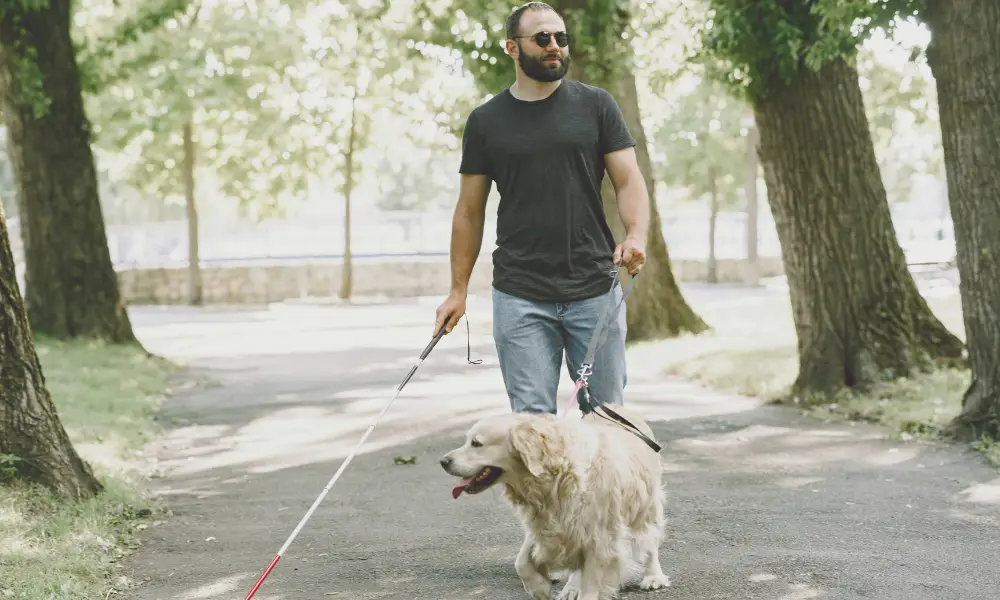
Making Food More Accessible
Senior dogs with limited mobility cannot reach their food and water bowls. We can make mealtimes more manageable for them. Here are some ways to do it:
- Place their bowls near where they rest to save them from walking far.
- Use bowls that are easy to reach without bending or straining.
- Choose bowls with non-slip mats or stable bases to prevent spills.
Environmental Modifications
We can also change their environment to help them move better and eat more. Here are some ideas:
- Give them orthopedic or memory foam beds for joint comfort.
- Clear the way to their food safely.
- Use ramps or stairs to help them get to higher places.
- You can fix these issues, improve their health, and make them happy in their golden years.
- Mobility Issue Feeding Modification Environmental Adjustment
- Arthritis Raised, non-slip bowls Orthopedic bed, ramps
- Joint Stiffness Bowls placed closer to resting areas Clear pathways, memory foam bed
- Muscle Weakness Lightweight, easy-to-access bowls Assistive devices (e.g., stairs, slings)
Medication Side Effects and Eating Problems
Our older dogs may require additional medications. These medications improve health conditions but can also suppress their appetite—data trained on medicine and how it can change a senior dog’s eating habits.
A few examples of my senior dog not eating 2 weeks after surgery. The operation is stressful and painful, making some reluctant to eat. Some patients, after surgical medicine and older adults, do not want to eat.
A senior dog coughing after drinking water but not eating could have an issue with its stomach. This may be due to a side effect from medication. It’s critical to monitor how much your senior dog is eating and consult your vet if it changes.
Medications for Dogs: Side Effects and What to Do
Non-steroidal anti-inflammatory drugs (NSAIDs): Loss of appetite, nausea, and vomiting. Talk to your vet about reducing the dose or trying another type of medication. Antibiotics can also cause gastrointestinal upset and loss of appetite. If you notice a senior dog shivering and not eating but drinking water, it could be a reaction to the medication. So, ensure your senior dog takes the prescribed medication and monitor their eating habits closely.
Antidepressants Changes in appetite, weight gain or loss Collaborate on treating your senior dog with your veterinarian to determine the proper medication and dosage. If the Command dies after taking a new medicine, call the vet. The vet can decide whether the medicine is the issue and will likely provide something different. It will help your dog eat and stay healthy with age.
Creating a Comfortable Feeding Environment
Make your senior dog’s mealtimes tranquil by being mindful of the temperature, timing, and distractions. This will create a happy time.
Temperature and Timing Considerations
Older dogs sense temperature changes, and warming their food a bit above room temperature means it tastes better and is more easily digestible. Consistent mealtime also gives them a sense of security.
Reducing Stress During Meals
Make mealtime serene for your senior dog. Give them food in a quiet area free from noise and other pets. Having a familiar eating area allows them to relax and eat better. Senior dog drooling and not eating fatigue with confusion may indicate a problem. It Could Be Due to Dental Issues or Changes in the Brain
Transitioning to Soft or Wet Food Options
Old dogs find it challenging to chew hard food as they grow older. This is normal, but there’s an easy fix: feeding them small, soft, or moist foods will help them retain their nutritional value. Smooth and wet foods are easy for old dogs with teeth issues to chew and digest. They are also easier for dogs that do not prefer hard foods. When switching to soft or wet food, gradually moisten it with the old type of food. Observe them when they bite and try to assess the new taste and texture.
Soft & Wet Food Benefits
- Easy to chew and digest High in moisture content
- Appealing texture for seniors Enhances hydration
- Preserves dental health Boosts appetite and food intake
Every senior dog is different. So, it’s key to talk to your vet to find the best food for your dog. Your senior dog can have a happy and healthy golden years with patience and care.
Monitoring Weight and Nutrition Levels
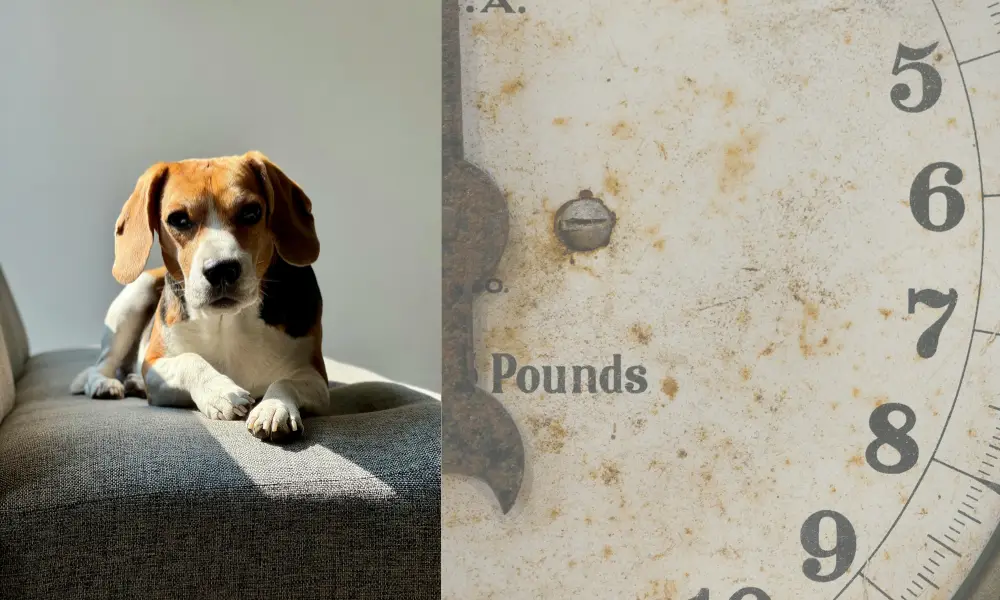
As dogs age, we must monitor their weight and eating habits. If a dog loses too much weight or stops eating normally, it may be because it does not feel good. We can weigh our dogs often and discuss any concerns with our vet. We must act quickly if a dog eats or drinks less than usual.
Additionally, we must regularly rub their bodies to gauge their health. Does their body have the right amount of muscle compared to fat? Our veterinarian can show you what is right for your dog and help you achieve it if necessary. This will ensure that our old dogs grow old, happy, and healthy.
Body Condition Score Description Action Needed
- 1-3 (Underweight) Ribs, spine, and hip bones visible; no fat cover Consult a veterinarian to address malnutrition
- 4-5 (Ideal) Ribs can be felt but not seen; the waist is visible from above Maintain current diet and exercise routine
- 6-9 (Overweight) Ribs not palpable; waist and abdominal tuck not visible Adjust diet and increase physical activity
By closely monitoring our senior dog’s weight and body condition, we can work with our veterinarian to address any nutritional concerns. This ensures our furry friend remains healthy and happy in their golden years.
- Also Read: Can Dogs Eat Rabbit Food?
FAQs
Why is my senior dog not eating?
Senior dogs might not eat for many reasons, including getting older, health issues, dental problems, and behavior changes. Watching your dog’s eating is key. If you notice anything off, talk to your vet right away.
Why is my senior dog eating wet food but not drinking water?
It might be sick if your dog eats wet food but doesn’t drink water. This could cause nausea, stomach problems, or other health issues. Taking your dog to the vet is essential to check its health.
Why is my senior dog lethargic not eating?
If a senior dog not eating and lethargic, it’s a serious problem. It could mean kidney disease, liver problems, or even Cancer. If your senior dog lethargic not eating confused, quickly get it to the vet.
What home remedies can I try to get my senior dog to eat?
You can try some safe home remedies to help your dog eat. But talk to your vet first. You can try small meals, high-calorie foods, or make eating more comfortable. But if your dog still won’t eat, see a vet.
How can I adjust my senior dog’s diet to encourage eating?
Changing your dog’s diet might help. Try senior-specific food or soft/wet food. Adding warm water or broth to their food might also help. Always check with your vet to ensure your dog’s diet is correct.
When should I seek veterinary care for my senior dog, who is not eating?
See a vet immediately if your dog isn’t eating and shows other ominous signs, like vomiting or diarrhea. Not eating can mean your dog is sick, so quick vet care is key for your dog’s health.
Conclusion
The most important thing we need to know is if a senior dog not eating, regardless of the cause, this is a symptom of something happening within their body and not a disease in its own right. If you notice your older dog needs to eat earlier, contact your vet sooner rather than later. Every senior dog is different; what works for one may not work for another. We must work with our vets and listen to our dogs to help them feel their best in their golden years.
About the Author
I’m James Leo, a canine nutrition expert and pet wellness advocate with a passion for helping dog owners make informed, science-backed decisions about their pets’ health. With years of experience in dog food formulation, breed-specific diets, and veterinary care, I specialize in creating research-based guides and tools that improve the lives of dogs and their families.
At DoggyDineZone.com, I’ve played a key role in developing accurate dog dosage calculators, ensuring that pet owners can safely administer medications and supplements tailored to their dog’s unique needs. My work is backed by collaborations with licensed veterinarians and canine nutritionists, blending practical experience with the latest scientific research.
I believe that every dog deserves a healthy, balanced diet, and I’m dedicated to simplifying complex nutrition science into clear, actionable advice. Whether you’re looking for homemade dog food recipes, breed-specific meal plans, or expert guidance on pet supplements, my goal is to provide reliable and easy-to-follow resources that empower dog owners.
I stay updated with the latest veterinary and pet nutrition research by engaging with industry leaders and participating in ongoing education. My approach is simple: help pet owners make confident, well-informed choices for their furry companions.
🔹 Medical Disclaimer: The content I provide on DoggyDineZone.com is for informational purposes only and should not replace professional veterinary advice. Always consult a licensed veterinarian regarding your pet’s health and care.
Through my work, I aim to be a trusted voice in canine nutrition and pet care, helping dog owners give their pets the best possible life.

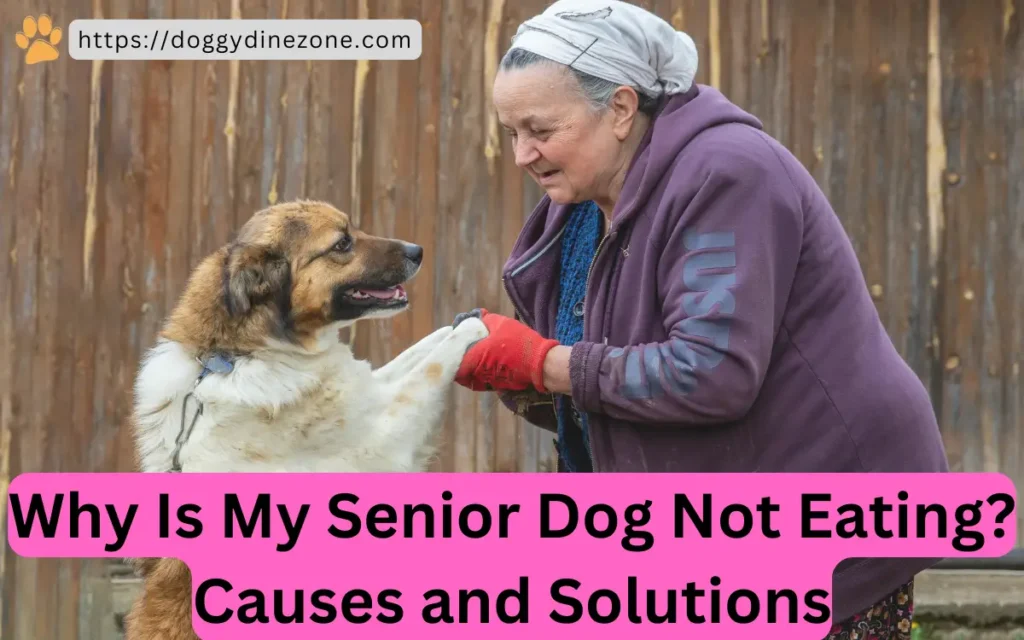

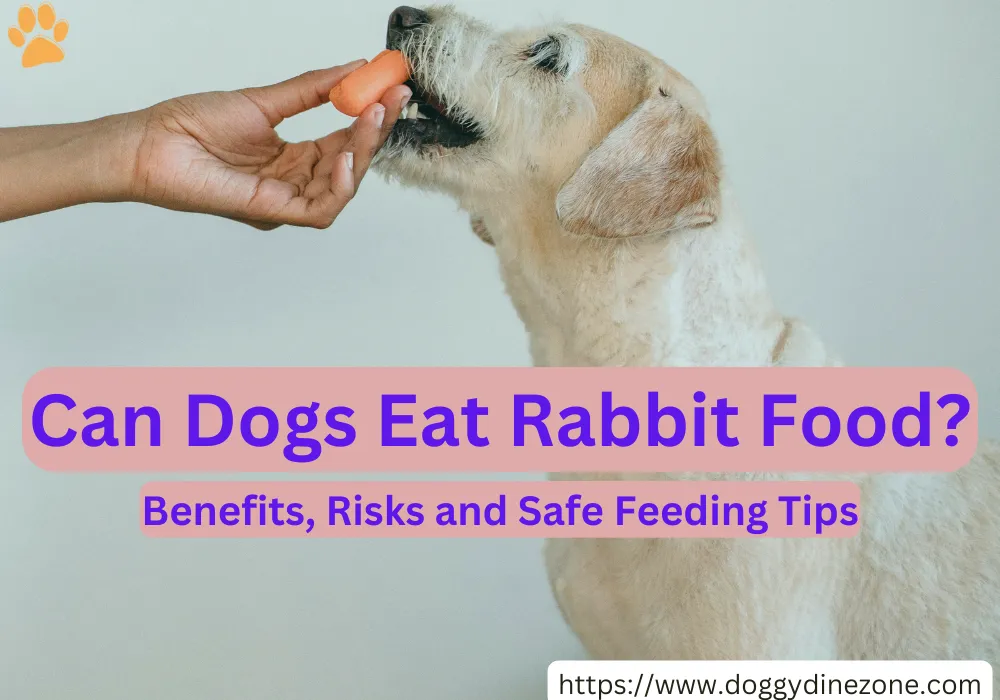
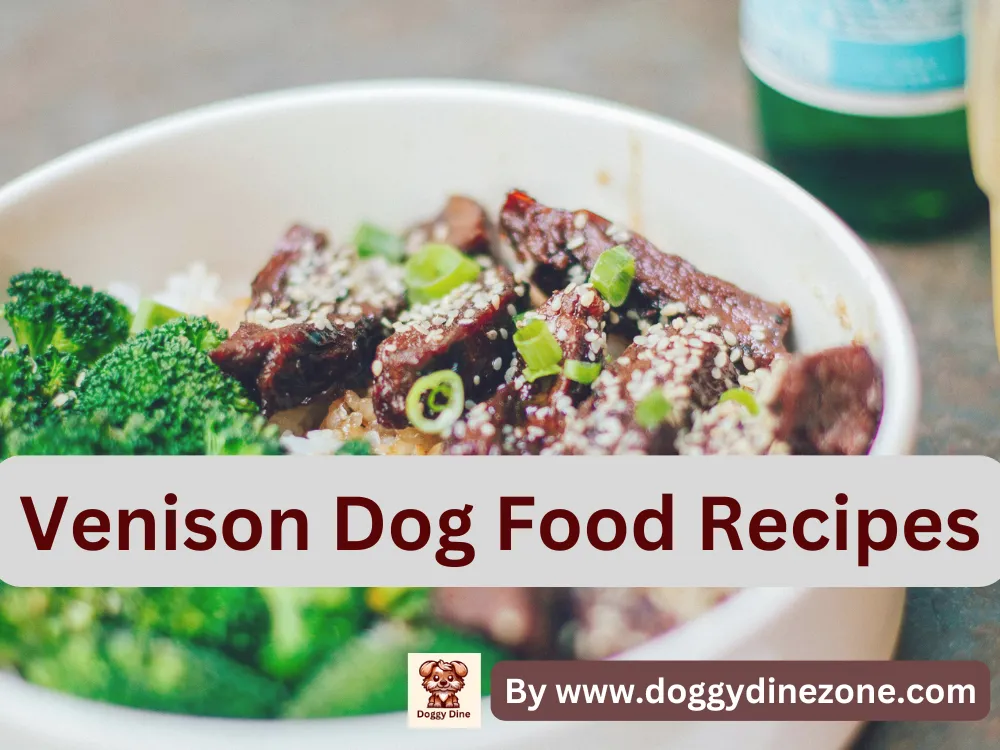
Pingback: Red Golden Retriever Puppies: How to Choose the Right One?
Pingback: Is Nature's Recipe a Good Dog Food? Find Out the Truth Today
Pingback: Worst Dog Food for German Shepherd: Harmful Choices to Avoid